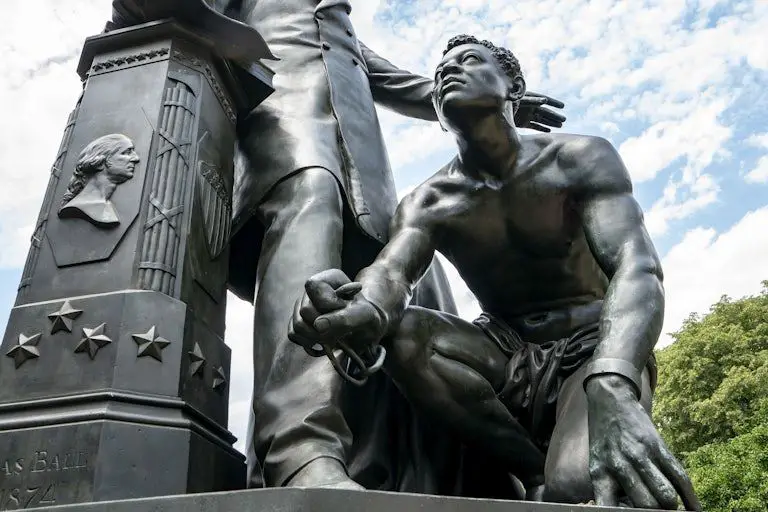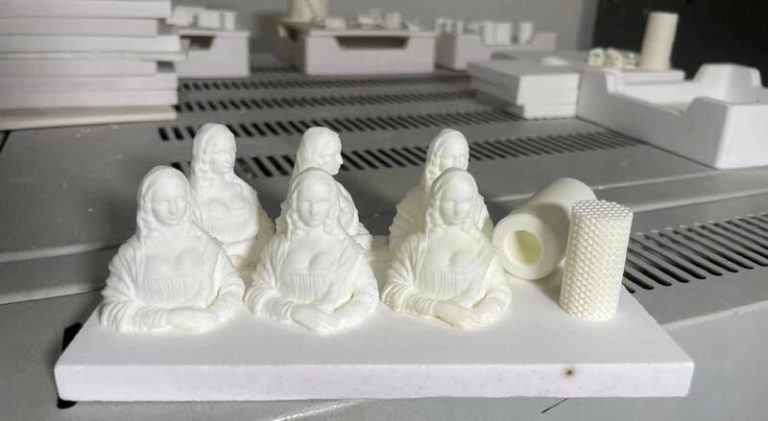When Did Cassius Clay Free His Slaves?
Introducing Cassius Clay
Cassius Marcellus Clay Jr., later known as Muhammad Ali, was born on January 17, 1942 in Louisville, Kentucky. He was named after his father Cassius Marcellus Clay Sr., who was in turn named after the 19th century Kentucky abolitionist and politician Cassius Marcellus Clay. As a child, Cassius Jr. was known as a rebellious and rambunctious boy who enjoyed boxing.
As a young man, Clay became a professional boxer and adopted the Muslim name Muhammad Ali. He would go on to become one of the greatest heavyweight champions in boxing history, known for his boxing talent and skills, as well as his charisma, controversial political stances, and refusal to be drafted into military service during the Vietnam War on religious grounds.
Ali was an iconic sports hero and global celebrity, and was considered a symbol of racial pride for African Americans during the 1960s civil rights movement. He was admired for his boxing prowess and showmanship in the ring, as well as his values and civil rights activism. Ali’s refusal to serve in the Vietnam War made him both a counterculture hero and a villain to conservatives.
Overall, Cassius Clay Jr. rose from humble beginnings in segregated Louisville to become one of the most famous and influential athletes and cultural figures of the 20th century. His legacy resonates to this day due to his boxing greatness, refusal to back down from his principles, and status as an inspiration for African Americans, Muslims, and conscientious objectors.
Sources:
https://en.wikipedia.org/wiki/Muhammad_Ali
https://www.biography.com/athletes/muhammad-ali
Cassius Clay and Slavery
Cassius Marcellus Clay was born in 1810 to Major General Green Clay and Sally Lewis Clay in Kentucky. The Clay family were major slaveholders in Kentucky, owning large plantations and numerous slaves. As the heir to the Clay estate, Cassius Clay inherited significant land holdings and slaves from his father. At one point, Cassius Clay owned around 60 slaves who worked on his plantation. Though slavery generated much of the Clay family’s wealth and status, Cassius Clay would go on to become a prominent abolitionist later in life.
According to Britannica, Cassius Clay owned a 600-acre estate worked by approximately 40 slaves near Richmond, Kentucky in the 1830s and 1840s. Despite benefiting materially from slavery early in life, Clay became increasingly critical of the institution as he educated himself on human rights and egalitarian principles. This set him on a path to emancipate his slaves and advocate tirelessly for the end of slavery in America.
Source: https://www.britannica.com/biography/Cassius-Marcellus-Clay
Clay’s Change of Views on Slavery
Born in 1810 to a wealthy slave-owning family in Kentucky, Cassius Clay originally grew up accepting slavery as normal. However, while studying at Yale University in the late 1820s, Clay became an avid reader and was deeply influenced by the abolitionist writings of William Lloyd Garrison.
After returning to Kentucky in 1832, Clay began actively speaking out against slavery, risking threats and violence. He used his newspaper, True American, to publish anti-slavery views. Clay called for the gradual end to slavery in Kentucky, advocating for compensated emancipation and colonization in Africa. He also urged allowing African Americans access to the court system and education.
Clay was nearly killed by a pro-slavery mob who attacked his newspaper office in 1845. Though he survived, his views became more radical, arguing for immediate abolition without compensation to slaveholders. Clay helped found the Liberty Party and established emancipationist colonies for freed slaves. He was a leader in the American Anti-Slavery Society, giving many speeches urging the end of slavery across the country.
Overall, Clay dedicated himself to the anti-slavery cause despite great personal risks, believing strongly in equal rights and human dignity. He played a pivotal role in the growing abolitionist movement in America.
Clay’s Emancipation of His Slaves
In 1845, Cassius Clay took the bold step of emancipating the slaves he had inherited from his father, starting the process of freeing around 60 men, women and children. As described in an article from The True American, Clay had become convinced that the institution of slavery was morally wrong and decided to take action by liberating his own slaves (source url).
Clay drew up emancipation papers in March 1845 to free the slaves held at his plantation in Madison County, Kentucky. In total, Clay emancipated around 40-50 slaves through this process, providing the legal documentation to grant them their freedom (source url).
For many of Clay’s former slaves, the news of their emancipation came as a great surprise. Having lived their entire lives in bondage on Clay’s estate, many struggled to grasp what their newfound freedom would mean. Some reacted with shock and disbelief, while others were overwhelmed with joy and gratitude towards Clay for his decision to set them free (source url).

Despite emancipating his slaves, Clay provided them with the option to remain working at his estate in paid positions if they chose. However some, upon gaining their freedom, decided to leave and make new lives for themselves elsewhere (source url).
Clay’s Continued Fight Against Slavery
Even after emancipating his own slaves, Cassius Clay remained a vocal opponent of the institution of slavery. He continued to give anti-slavery speeches across Kentucky and advocate for abolitionist policies (Fee, John Gregg). In 1845, Clay began publishing an anti-slavery newspaper called The True American, but its presses were seized and operations shut down by pro-slavery forces in 1849 (cassius clay son of Charles Clay).
Clay continued his abolitionist activities leading up to the Civil War, attempting to sway public sentiment against slavery. He corresponded with many prominent abolitionists and gave impassioned speeches denouncing slavery as an affront to morals and democratic principles (Towers on Harrold, ‘The Abolitionists and the South, 1831-1861’). Though Clay’s support waned in the late 1850s, he remained dedicated to the anti-slavery cause until slavery was finally abolished.
Reactions to Clay’s Emancipation
Clay’s decision to free his slaves was met with strong backlash, especially from his family and others in Kentucky society at the time. As a prominent politician and slave owner from an influential Kentucky family, Clay’s actions were seen as a betrayal by many. His emancipation announcement sparked an immediate reaction among pro-slavery advocates in the state.
Clay’s father, Green Clay, was staunchly opposed to his son’s decision. Green Clay himself owned over 50 slaves and made his fortune from his Kentucky plantation. According to Green Clay’s biographer, Green was “mortified” and considered his son’s actions a disgrace to the Clay name [1]. Other family members also sharply criticized Cassius Clay. His cousin, Brutus Clay, accused him of hypocrisy for previously owning slaves before freeing them [2].
Many of Clay’s neighbors and broader Kentucky society reacted with anger and condemnation. As a border state where slavery was legal, emancipation was extremely controversial. Clay faced threats of violence and warnings that freed slaves would not be tolerated in Kentucky. Mobs attacked his emancipation office in Lexington on multiple occasions [2]. Clay himself endured physical assault for his views. The backlash highlighted just how polarizing and dangerous Clay’s actions were considered at the time.
Lasting Impact on Slavery
Cassius Clay’s emancipation of his own slaves and his vocal advocacy for abolition served as an inspiration to others. Though many slave owners criticized his actions, Clay’s moral stand against slavery demonstrated to Americans that emancipation was a viable option. His brave leadership paved the way for other slaveholders to follow suit and free their slaves.
Clay’s outspoken opposition to slavery also brought attention to the abolitionist cause and put pressure on lawmakers to contain the expansion of slavery. He continued to promote emancipation through his newspaper The True American which argued forcefully against slavery. Though Clay faced threats to his life for his views, he refused to back down. His perseverance gradually turned the tide of public opinion further against slavery.
While the Emancipation Proclamation and Civil War were still necessary to end slavery completely, Cassius Clay’s early leadership was instrumental in initiating the movement. As one of the largest slaveholders in Kentucky to voluntarily free his slaves, his principled stand served as an inspiration. In the decades leading up to the Civil War, Clay kept the debate over slavery prominent and convinced many to see it as a moral wrong that must be abolished.
Cassius Clay’s Later Years
After retiring from boxing in 1981 at age 39, Cassius Clay, later known as Muhammad Ali, devoted much of the rest of his life to activism and humanitarian work. Though he had already proven himself a controversial figure during the height of his boxing career, he continued to speak out about social and political issues. He focused on promoting world peace, condemning bigotry, and providing humanitarian assistance in developing nations.
In his later years, Clay made goodwill missions to Afghanistan and North Korea, and delivered medical supplies to refugees in Indonesia. He also acted as a United Nations Messenger of Peace in Afghanistan, traveling there in 2002. Throughout the 1990s and 2000s, he continued to be involved with the Special Olympics and the Make-A-Wish Foundation, granting wishes to children with life-threatening illnesses.
On June 3, 2016, Clay passed away at the age of 74 in Scottsdale, Arizona from septic shock after battling Parkinson’s disease for over 30 years. He left behind an unmatched legacy as one of the greatest heavyweight boxers of all time, as well as for his activism outside of the ring. Though his boxing career only spanned two decades, his influence as an advocate for civil rights, humanitarian causes and interfaith understanding continued long after he hung up his gloves for good.
Legacy and Significance
Cassius Clay’s legacy lies primarily in his tireless efforts to end slavery in the United States. Though he himself was once a slave owner, Clay underwent a remarkable transformation and became an outspoken abolitionist. His emancipation of his own slaves in 1845 was highly controversial but set an important moral example. Clay continued to advocate for ending slavery through speeches, writings, and his antislavery newspaper True American. He played a key role in convincing Abraham Lincoln to issue the Emancipation Proclamation in 1863, which freed slaves in rebelling states.
Clay’s staunch anti-slavery views made him many enemies but he never wavered in his convictions. His brave activism in a slave state like Kentucky inspired many others to take a stand against slavery. Though Clay did not live to see the 13th Amendment passed in 1865, his efforts paved the way for the abolition of slavery in the United States.
In honor of his legacy, the city of Cassius, Kentucky was renamed Clay City. The mansion he built, White Hall, was made into a state historic site. A statue of Cassius Clay stands in front of the Madison County courthouse in Richmond, Kentucky. The boxer Muhammad Ali, who was born in Louisville, Kentucky, adopted the name Cassius Clay when he began his boxing career in tribute to the 19th century emancipator.
Conclusion
In summary, Cassius Clay underwent a remarkable journey from being a major slaveholder to becoming an outspoken emancipator and abolitionist. Though born into a slaveholding family in Kentucky, Clay eventually came to the realization that slavery was morally wrong. In 1845, he took the bold step of freeing the slaves he had inherited from his father, providing them transportation to Liberia.
Clay’s emancipation of his slaves sent shockwaves through Kentucky and the South. It was extremely rare for a prominent slaveholder to voluntarily free their slaves at that time. Though Clay faced backlash, he continued to advocate for the end of slavery in speeches and writings. He played a pivotal role in the antislavery movement leading up to the Civil War.
While Clay’s emancipation did not singlehandedly end slavery in America, it was an inspiring example of one man’s change of heart and willingness to make personal sacrifices for what he believed was right. Clay’s brave stance inspired many others to question the morality of slavery. He will be remembered as a champion of freedom who stood on the right side of history.






